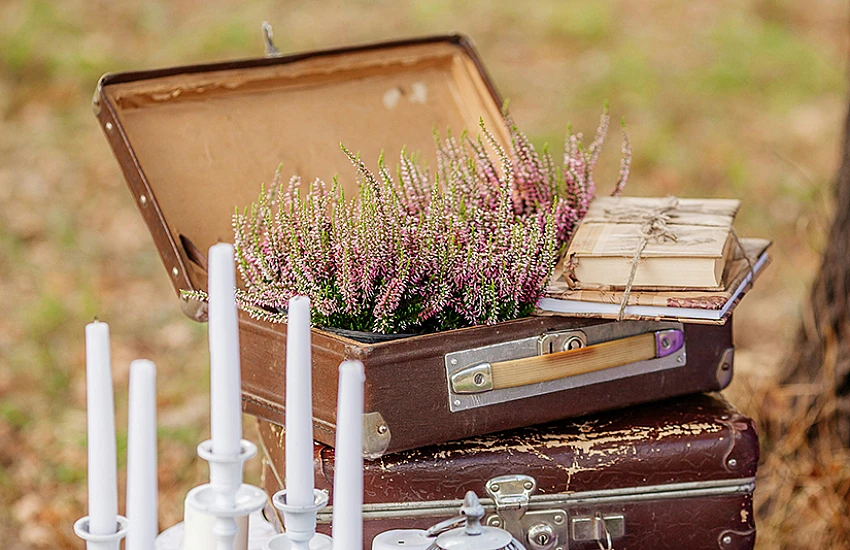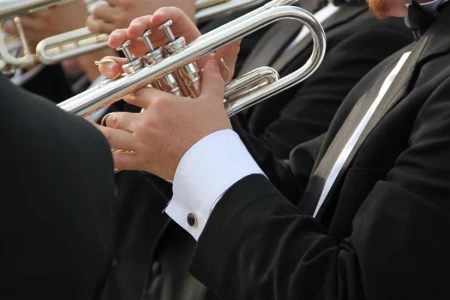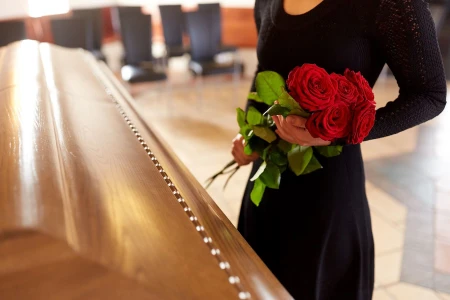Table of Contents
A funeral is a profoundly significant moment of saying goodbye to a loved one. It marks not only the end of a chapter for family and friends but also offers a time for reflection on life and death. The choice of ceremony form depends on the beliefs of the deceased and their loved ones—it can be a religious funeral rooted in tradition and spirituality or a secular one focused on the earthly aspects of the deceased's life. This article explores the key differences between secular and religious funerals, analyzing their symbolism, ceremony locations, and proceedings to help understand how these two forms honor the deceased in distinct ways.
Key Differences Between Secular and Religious Funerals
Funerals are among the most important rites of passage, helping loved ones express grief and honor the memory of the deceased. Depending on religious beliefs, personal preferences, and traditions, these ceremonies can vary in form and meaning. The core differences between secular and religious funerals revolve around the ceremony's character and symbolism.

The Nature of the Ceremony: Sacred vs. Secular
One fundamental difference lies in the nature of the ceremony itself.
Religious Funerals
These are deeply rooted in spiritual and ritualistic traditions. The purpose is not only to bid farewell but also to provide spiritual care for the soul and prepare it for eternal life. In most religions, such as Christianity, Islam, or Judaism, funerals serve as a prayer for the deceased's soul to find peace in the afterlife.
Secular Funerals
In contrast, secular funerals exclude religious and spiritual elements. They focus on the deceased's earthly life—highlighting achievements, relationships, and the impact they had on others. These ceremonies aim to honor the deceased personally, often avoiding references to the afterlife.
Location of the Ceremony
The venue is another distinguishing factor.
Religious Funerals
These typically take place in sacred locations like churches, synagogues, mosques, or other places of worship associated with the deceased's faith. Ceremonies are usually led by clergy, who conduct rituals in line with religious traditions.
Secular Funerals
These can be held in a variety of non-religious settings, such as funeral homes, farewell halls at cemeteries, crematoria, or even parks and gardens that had personal meaning to the deceased. Secular ceremonies allow for greater flexibility and personalization according to the family's wishes.

Ceremony Proceedings
The structure of the ceremony also differs significantly.
Religious Funerals
These follow a structured and traditional order, typically involving a funeral mass, prayers for the soul, and rituals like burial in a religious cemetery. For example, in Christian ceremonies, key elements include prayers, blessings, and symbolic rituals performed by clergy.
Secular Funerals
These offer more flexibility and are often tailored to the family’s preferences. The ceremony is usually led by a celebrant trained in conducting secular funerals. It might include personal tributes, reading farewell letters, playing the deceased's favorite music, or showing photographs. The focus is on creating a meaningful tribute that reflects the deceased's personality and life philosophy.

Symbolism and Religious Elements
Religious Funerals
Symbolism is deeply rooted in faith. In Catholic ceremonies, symbols like crosses, holy water, candles, and religious hymns emphasize beliefs in eternal life and resurrection. Rituals often focus on concepts of sin, salvation, and life after death.
Secular Funerals
These avoid religious symbols, focusing instead on personal values, achievements, and relationships. Music, speeches, or objects that had personal meaning to the deceased may be included. If the deceased held specific life philosophies, these could also shape the ceremony's symbolic elements.
Role of Clergy vs. Celebrants
Religious Funerals
Clergy, such as priests, rabbis, or imams, play a central role. They lead prayers, recite sacred texts, and perform blessings according to religious traditions.
Secular Funerals
These are led by a celebrant, who focuses on personal aspects of the deceased's life. The celebrant works closely with the family to create a personalized ceremony that authentically honors the deceased.

Farewell to the Body
Religious Funerals
Burial in the ground is often emphasized, symbolizing spiritual beliefs like resurrection and eternal life.
Secular Funerals
There are no spiritual restrictions. The form of burial—whether traditional, cremation, or eco-friendly options like scattering ashes in nature—is based on the deceased’s or family's wishes.
FAQ — Frequently Asked Questions
1. How does the nature of secular and religious funerals differ?
Religious funerals focus on spiritual and ritual elements, offering prayers for the soul and preparing it for the afterlife. Secular funerals focus on the deceased's earthly life, achievements, and relationships without spiritual references.
2. Where are religious and secular funerals typically held?
Religious funerals are conducted in sacred spaces like churches or synagogues. Secular funerals can be held in funeral homes, farewell halls, crematoria, or outdoor spaces meaningful to the deceased.
3. What is the order of a religious funeral ceremony?
It typically involves a structured service with a funeral mass, prayers, and traditional rituals such as burial, led by clergy.
4. What is the structure of a secular funeral ceremony?
Secular ceremonies are flexible, led by a celebrant, and tailored to the family's preferences. They may include personal tributes, music, and unique elements reflecting the deceased's life.
5. What symbols are common in religious funerals?
Symbols like crosses, holy water, candles, and religious hymns emphasize faith in eternal life and resurrection.
6. What symbols are used in secular funerals?
These focus on personal elements like music, speeches, and tributes that reflect the deceased's values and relationships.
7. Who leads religious funeral ceremonies?
Clergy members such as priests, rabbis, or imams lead the ceremony, offering prayers and conducting rituals.
8. Who conducts secular funeral ceremonies?
A celebrant leads the ceremony, focusing on personal aspects and collaborating with the family to create a unique service.
9. What are the practices for saying goodbye to the body in religious funerals?
There is often a strong emphasis on traditional burial, symbolizing beliefs in resurrection and eternal life.
10. What are the burial options in secular funerals?
Secular funerals offer flexibility, with options like traditional burial, cremation, or eco-friendly alternatives.




